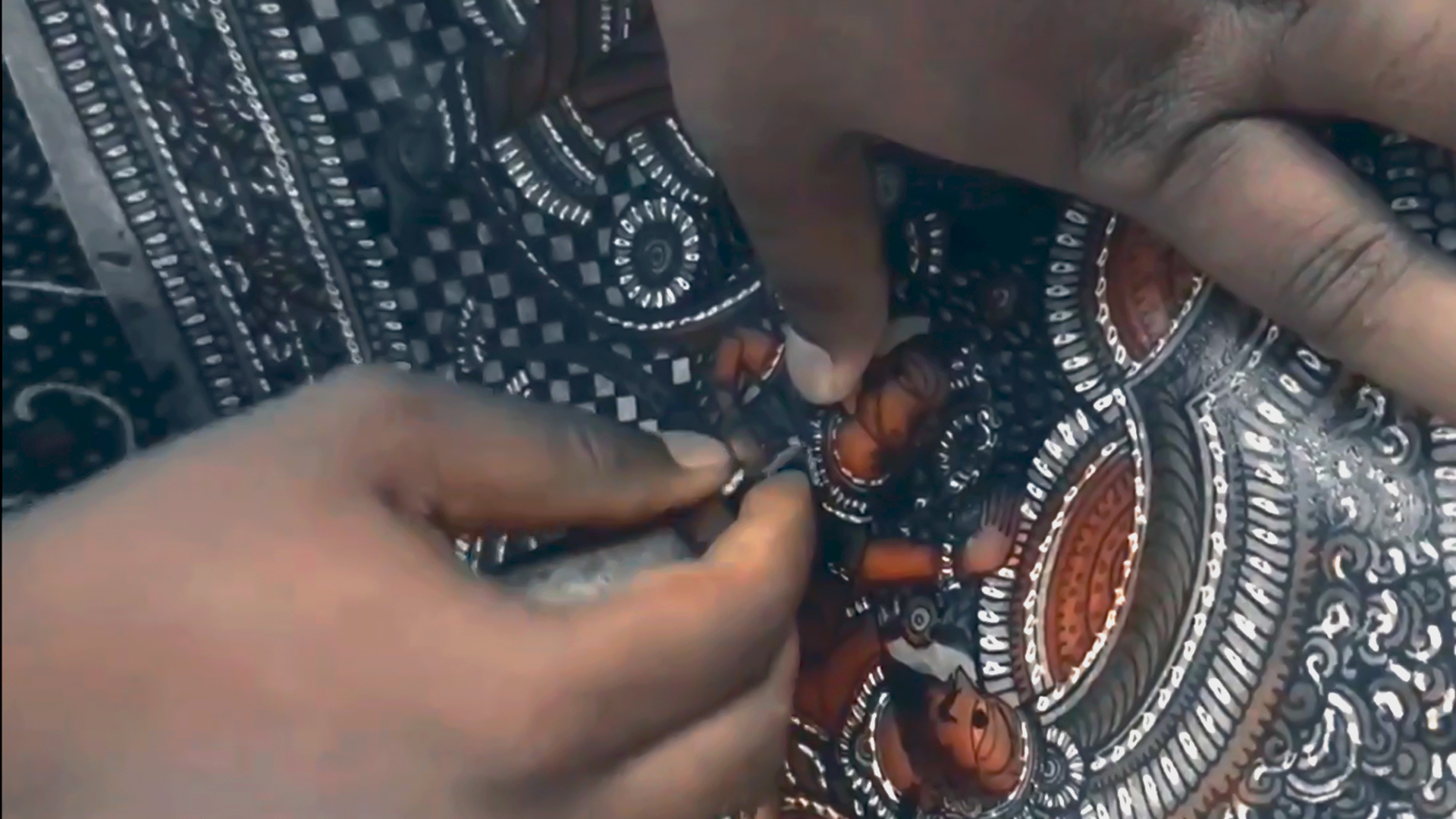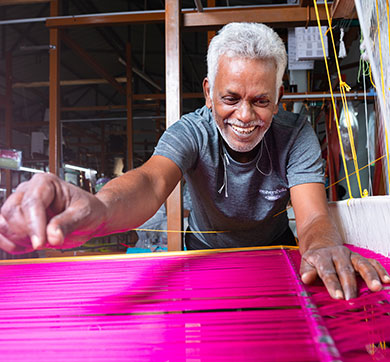August 2025 | 1166 words | 5-minute read
Khetaram Sumra had always been driven by a mission to preserve his cultural heritage while empowering others like him with a dignified livelihood. But declining demand for handmade products proved to be a major obstacle for this 25-year-old artisan from Barmer, Rajasthan.
The story is a familiar one in communities that have upheld India’s arts and crafts traditions for decades, and are now having to adapt to changing consumer behaviour due to easy access to mass-produced, machine-made goods and preferences for affordability, while countering a lack of marketing and market access for their small businesses.
Now, however, Mr Sumra is on an upward trajectory, following interventions from Titan Company’s Project Tarasha, which was instituted to empower India’s rural craft entrepreneurs or ‘craftpreneurs’. His enterprise, Rohida Handlooms — which he created to promote pattu, an ancestral craft that produces warm, vibrant shawls and blankets from sheep or camel wool, that serve as essential garments in Rajasthan’s bitter rural winters — is thriving. “Before Tarasha, we used to produce garments in four or five colours. Now, we’ve added many more designs and colours to give pattu a new face,” says Mr Sumra. “Tarasha helped us a lot; we’ve learnt about making social media posts, writing captions and creating reels, and when it comes to exhibitions, how best to display our products and engage with customers. Earlier, I used to weave alone; now I have taught five others to do the weaving as well.”
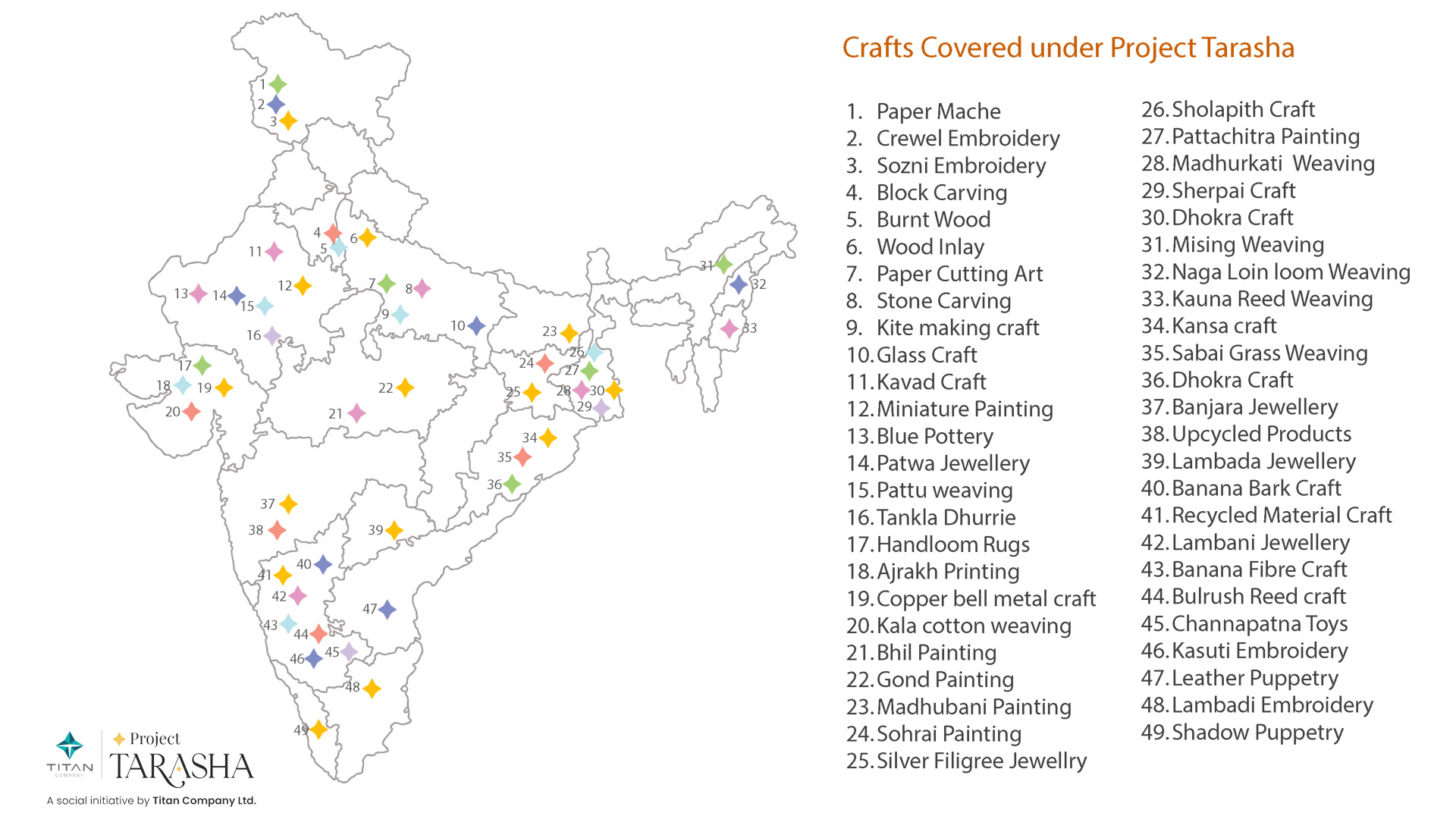
Turning a crisis into an opportunity
Mr Sumra is just one of many artisans whose families have benefited from Project Tarasha, an initiative that has been transforming lives in the rural handicrafts sector since the early months of the COVID-19 pandemic in 2020. The series of lockdowns impacted the traditional arts and crafts sector (as it did nearly every sector, with rural artisans losing their primary means of livelihood. “We recognised this crisis as a moment of opportunity — to not only offer immediate support but to reimagine artisan empowerment through craftpreneurship,” says Ritika Gandhi, Vertical Lead, CSR, Titan Co.
This reimagining began with the creation of micro-websites for artisans and digital upskilling and quickly evolved into a holistic enterprise development model. “Tarasha now empowers artisans through design mentoring, digital transformation, business development training, and market connections,” says JJ Dominic, Head, CSR, Titan Co. “The partnership with Creative Dignity (CD) from 2022 brought deeper on-ground impact, particularly for non-textile crafts and underrepresented geographies.”
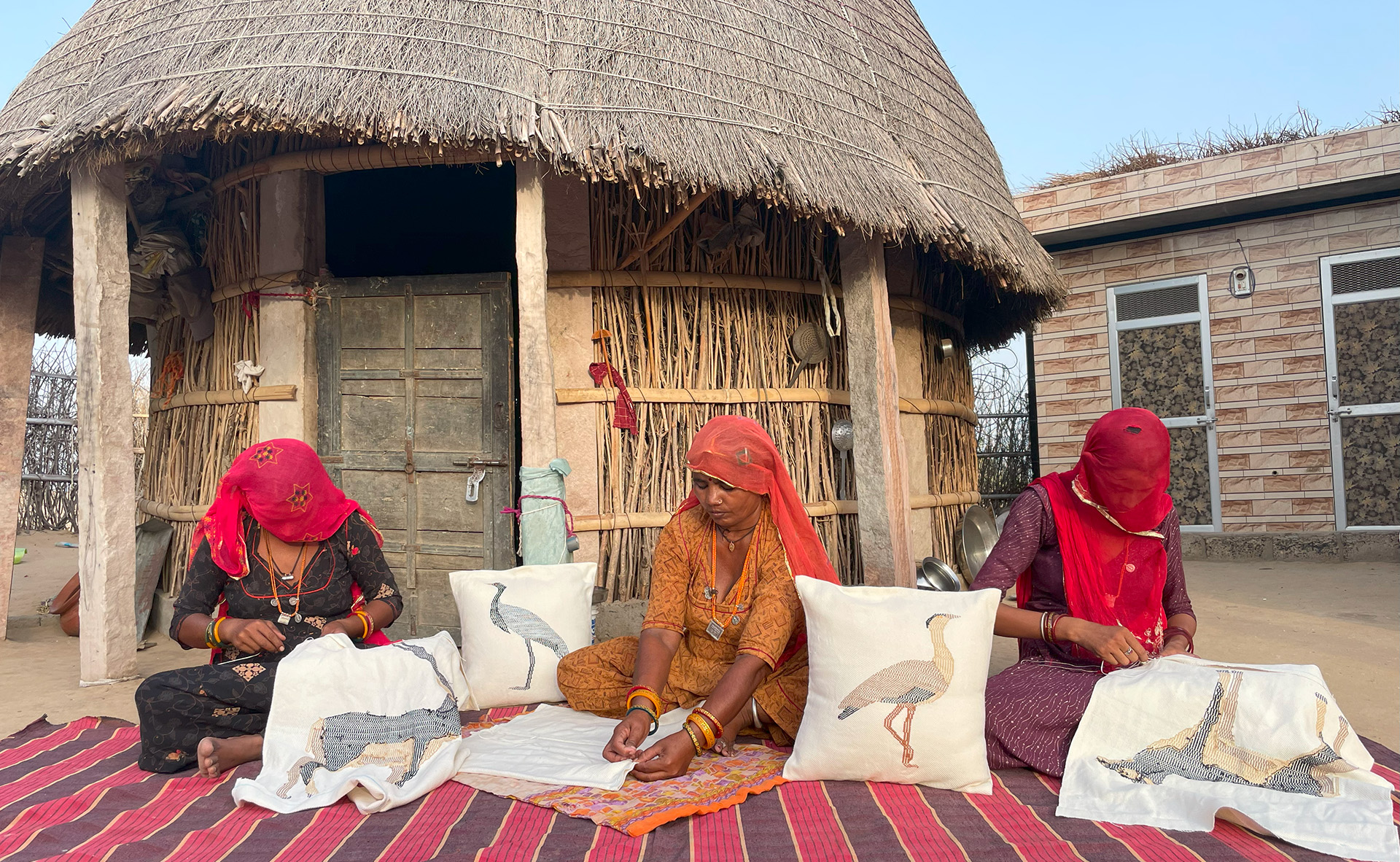
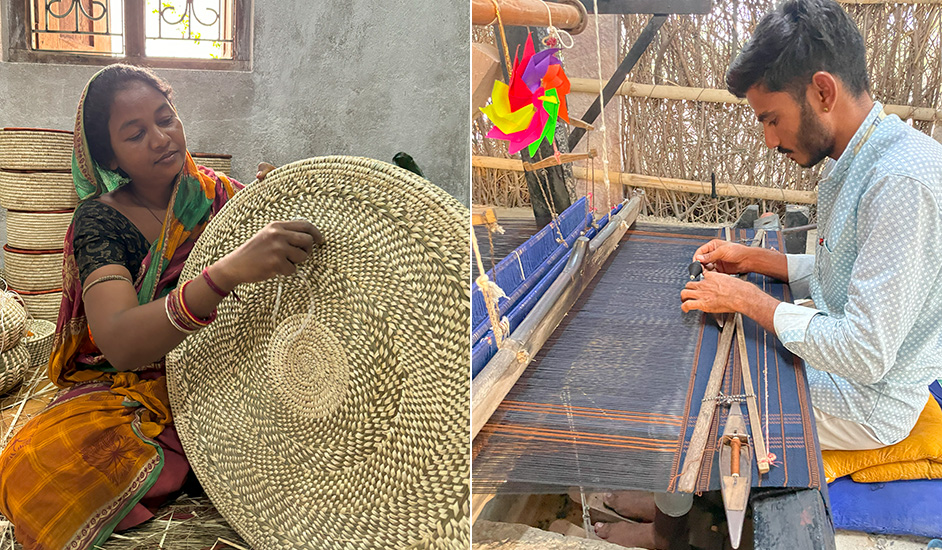
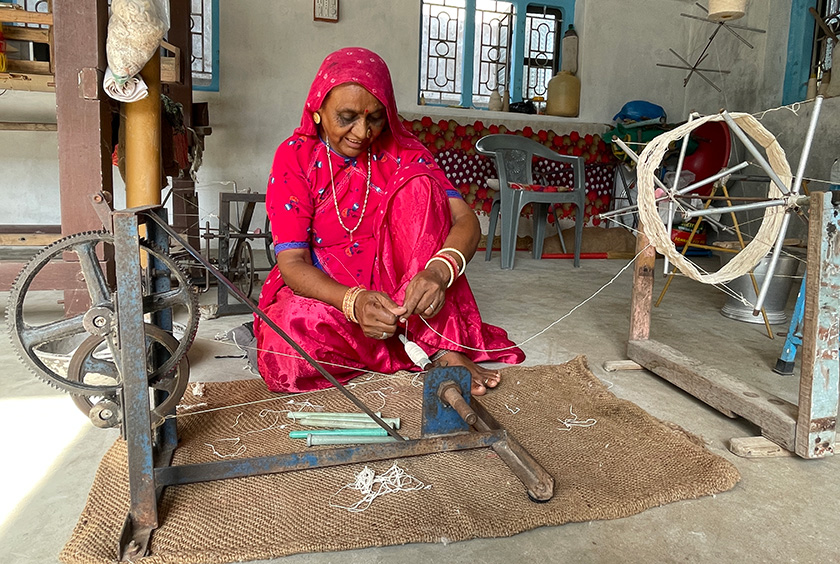
Tarasha (which translates to chiselled or carved) aligns with Titan’s commitment to sustainable livelihoods and inclusive growth by nurturing artisan entrepreneurs to become self-sustaining business leaders, thus fuelling a regenerative rural economy. It embodies Titan’s ESG pillars through equity and inclusion, by reaching aspirational districts, being women-led and promoting tribal crafts; transparency and democracy, which involves open-source knowledge sharing, artisan co-creation, and shared success; and lastly, environmental responsibility, by supporting sustainable materials and technology infusion for efficiency.
A unique proposition
Project Tarasha stands apart by redefining how CSR can be impactful and sustainable. The initiative has a multi-dimensional approach, blending design, technology, and business development. Its unique proposition involves a series of steps:
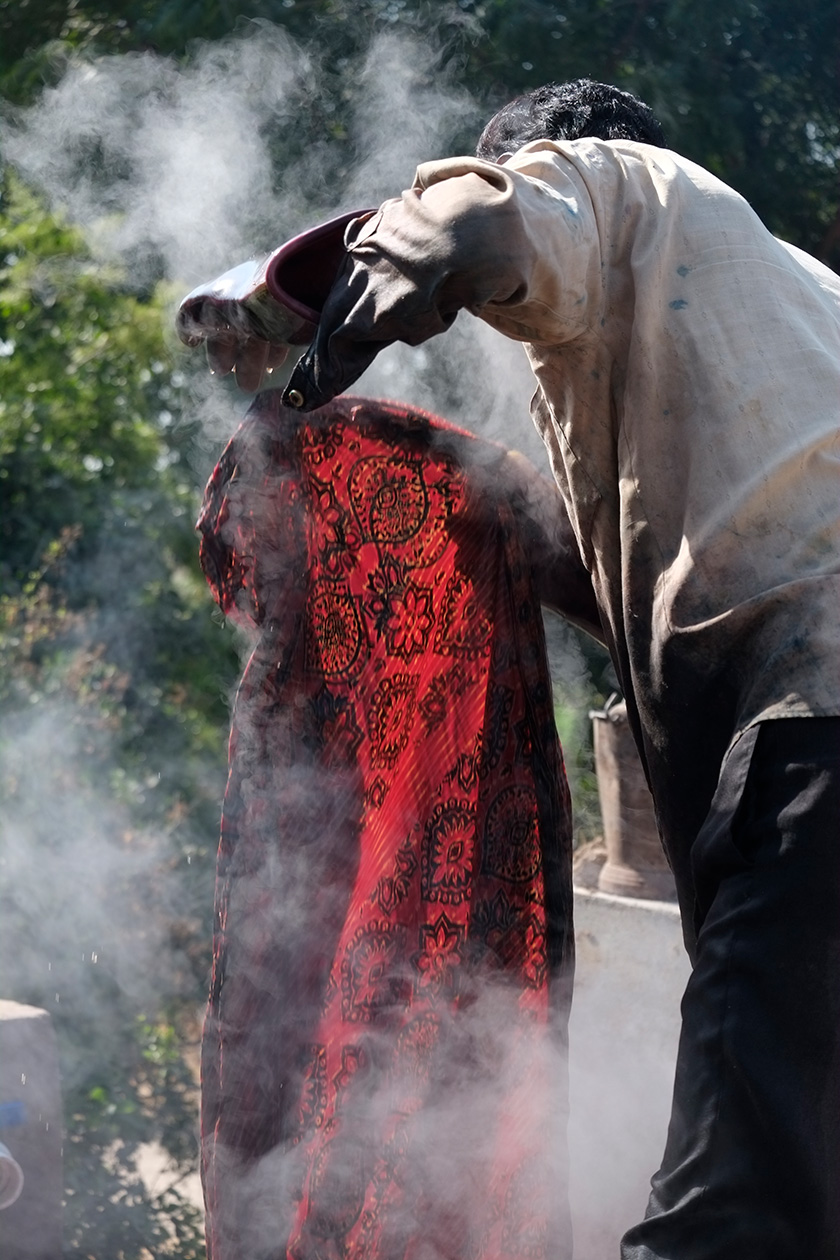
Customised, need-based support: Recognising that no two craftpreneurs face the same challenges, Tarasha offers highly tailored interventions. It focuses on real-time, context-specific needs — like design intervention, digital skill training, business workshops, market connects, skill development training, and technology infusion — informed by detailed baseline and endline assessments, ensuring accountability and measurable impact.
Collaborative ecosystem: A dynamic network of collaborators, including designers, domain experts, and stakeholders from the craft ecosystem, ensures a comprehensive approach to nurturing both individual craftpreneurs and enterprises, making interventions more effective, responsive, and sustainable.
Transformative design interventions: Through design mentorships, craftpreneurs receive expert guidance to enhance their creative and technical skillsets, while collaborations between designers and craftpreneurs foster innovation and elevate craftsmanship standards. Plus, new product development initiatives open doors to diversified offerings and broader market opportunities. These interventions have not only elevated the quality of crafts but have also strengthened the market readiness of enterprises.
New benchmarks in transparency and impact: Aligned with Tata’s core values, Tarasha upholds a culture of transparency, ethical practices, and excellence. Its open methodology encourages replicability, scalability, and continuous improvement.
Navigating complexity with cultural sensitivity: Operating across diverse geographical and socio-economic contexts, Tarasha addresses local nuances with empathy. This capability to manage a complex and scattered cohort makes it uniquely resilient and inclusive.
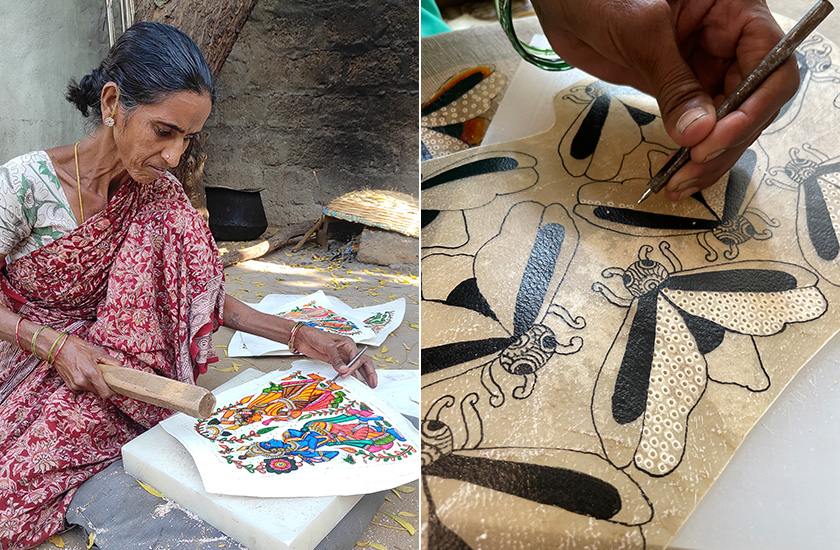
Artful strategies
The importance of empowering craftpreneurs to strengthen India’s economy and cultural heritage, cannot be denied. Craftpreneurship ensures that traditional crafts evolve and remain viable by adapting craft practices to contemporary markets through design innovation, enabling artisans to own their business journeys rather than being passive wage earners, and focusing on non-textile crafts and vulnerable practices from tribal and minority communities, including women-led artisan enterprises.
However, Project Tarasha’s mission has not been without its challenges. There were several gaps to address, like a lack of digital literacy among rural artisans, the difficulties in coordinating across diverse geographies and languages, ensuring design interventions match craft levels, and the logistics of mentorship and artisan availability, which were often time-consuming to manage.
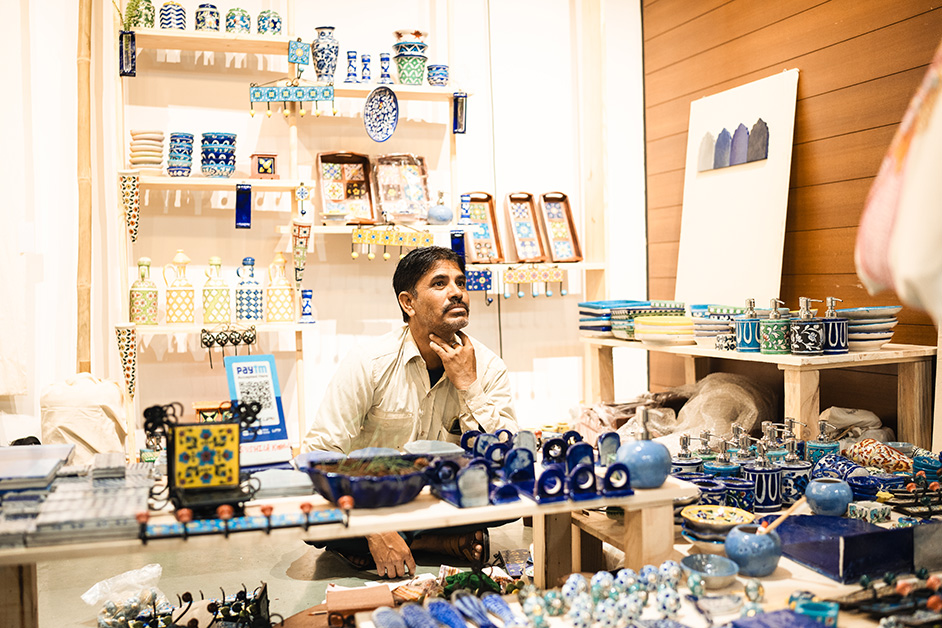
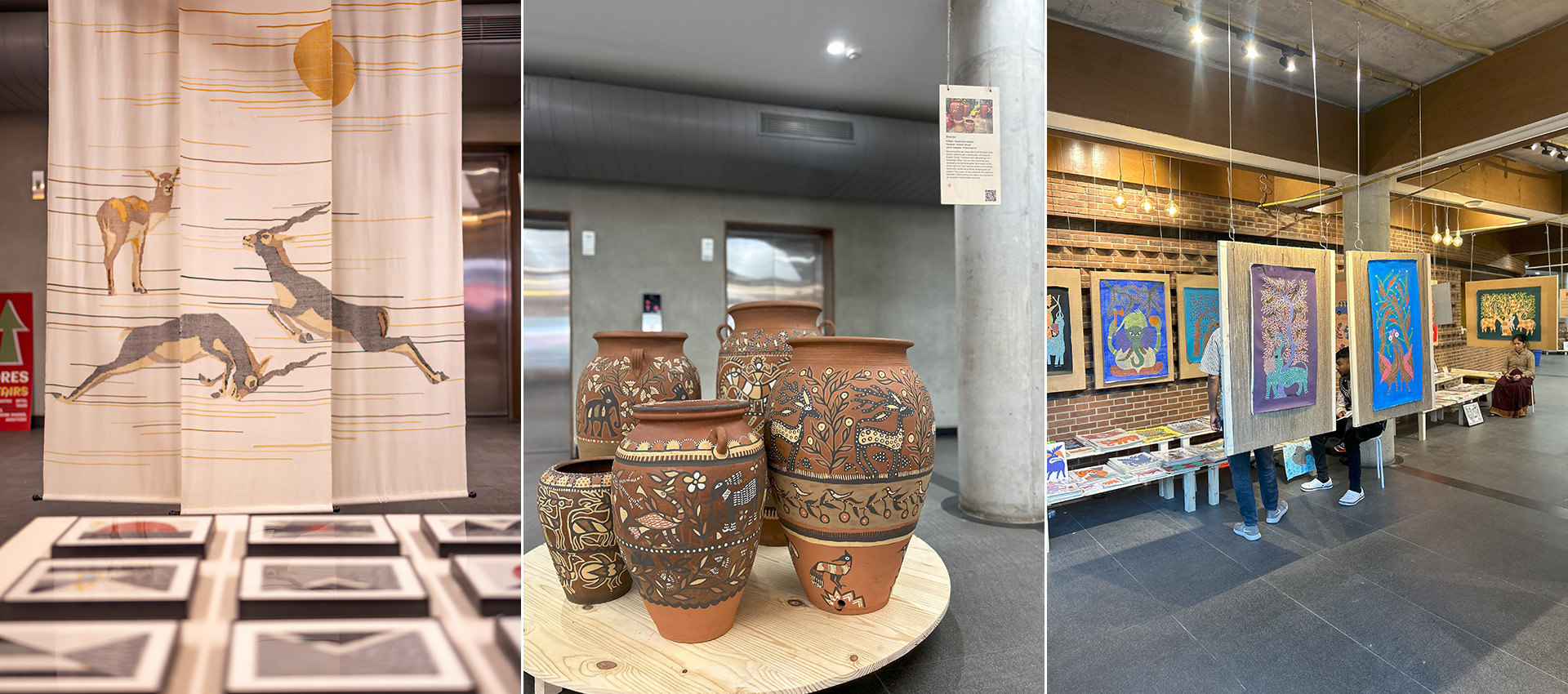
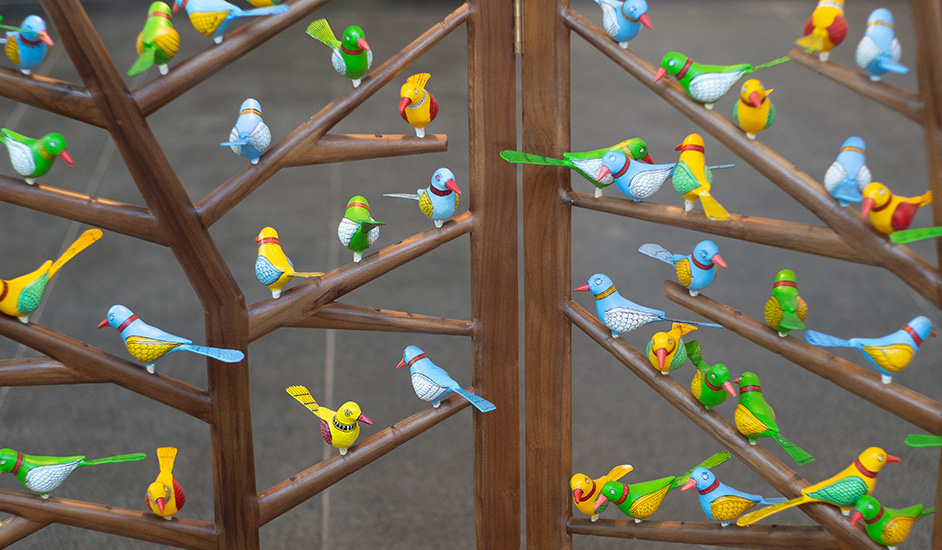
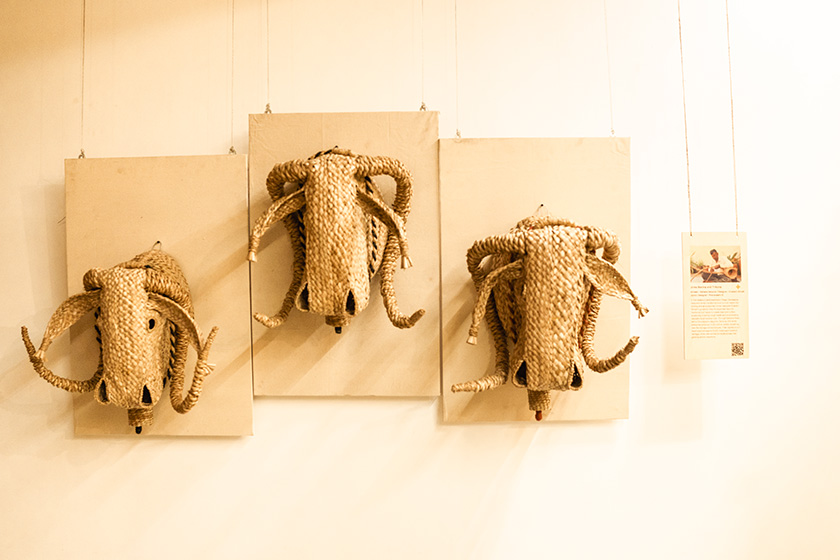
To counter these problems, Tarasha ensured a phased onboarding of artisans and mentors via digital skill modules; focused on customised, contextual capacity building based on individual artisans’ needs; instituted a two-year engagement model to ensure deeper, sustained impact; and organised collaborative exhibitions and curated pop-ups to bridge artisans with new markets.
For FY25-26, Project Tarasha is committed to onboarding 22 new artisans, while continuing its support to 18 existing ones. The initiative will also focus on non-textile crafts in underrepresented states like West Bengal, Chhattisgarh, Madhya Pradesh and Odisha, and strengthen digital infrastructure with artisan website development, SEO training and target-based online sales plans.
A holistic impact
Since its inception, the initiative has positively transformed the lives of over 1,047 households, promoting 49 unique crafts across 18 states. But Titan and CD assessments go beyond the expected parameters to implement a robust framework to measure outcomes. These include:
- Baseline and endline surveys that assess changes in income, digital skills, design capability, and market access.
- Tracking enterprises under ‘Transformative’ (50% growth) or ‘Deep Impact’ (20-30% growth) models.
- Measuring impact not just in sales but also by enhanced confidence, exposure, and enterprise independence.
- The project also monitors artisan wellbeing, production efficiency, and engagement levels through continuous mentoring, feedback loops, and personalised support plans.
Additionally, Titan Co will be hosting the ‘Tarasha Experience’, a flagship event for B2B and retail showcasing, complete with a graduation ceremony, collab exhibitions, and an ‘Anokha’ innovation space. In the long term, Tarasha will also forge strategic partnerships with other market facilitators for regional reach and deeper market integration.
Tarasha’s holistic approach combines tradition with technology, market access, and storytelling, thus ensuring India’s craft legacy is not only preserved but elevated in the modern economy.
—Anuradha Anupkumar




